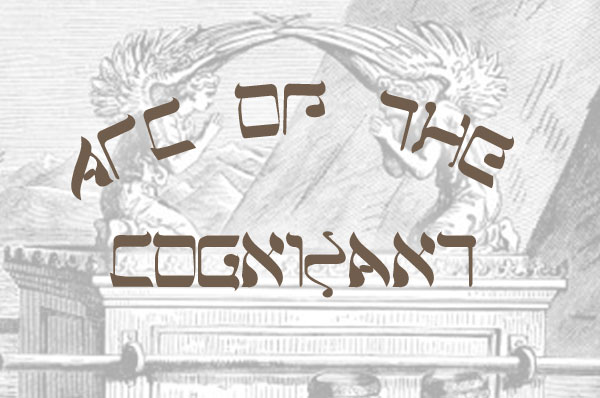What makes a politician?
“Be the change you want to see.” Mahatma Gandhi
“Ask not what your country can do for you, but what you can do for your country.” J.F. Kennedy
“The role of a statesman is to hear the god of history passing and take hold of his coattails on his way.” Otto von Bismarck
“Political power grows from the barrel of a gun.” Mao Zedong
“When kings are philosophers, and philosophers kings, society will flower.” Plato
Why do we bother?
What motivates anyone to “go into politics”? I ask because there has been such an outpouring of praise for the recently-deceased politicians Jim Flaherty, Herb Gray, and not so long ago for Jack Layton.
Contrast those men’s high reputations and the fine words heaped on them in death, with what most of us hear and say about Harper, Duffy, and others of their ilk in the current crop of politicians in Ottawa, or about Clark, Campbell and others in Victoria. Or Redford in Alberta.
I will say nothing about the reputations of politicians in our local governments. That is too close to my home.
Are individuals moved to enter “government service” and “public life” by the best or the worst of human intentions — or just by the usual mixture of both selfish desires and altruistic ideals? The latter is my choice for an answer. Humans aren’t often simple in their intentions, I believe.
I will simplify reasons for public work in politics into three broad precincts:
1. Because your skill set is precisely what the job needs, and you see the job as just another career path which happens to be the one you are best suited for. You foresee “success” in it. This the most self-interested cause. It may fairly be called realism.
2. Because politics is so close to the kind of work you have already been doing, as a person in business, law, or some employment wherein you constantly feel the force of government policy. In government you see the means to some particular end. This is pragmatism.
3. Because you have a general program for changing society, and government power is the agency to enact the legislation and engineer the transformation. This is idealism.
Making a difference?
It is often observed how politics has a very definite set of skills for the ones who advance furthest in a career of governing. You cannot have merely average intelligence, nor merely average capacity for long hours of hard and sometimes tedious work. You need to be well above the average in one of these and usually both. Leaders cannot be average. Becoming a leader of others and having your ideas shape action is the mark of the person who is succeeding in politics. It helps to be genuinely sociable and extrovert, but that is not essential.
You may need to be possessed of leadership ability. Not easy to define, but one knows it when one sees it. If people do not like you at some level, if you cannot give directions and have people follow them with good will and satisfaction, you cannot lead for long.
You might well not need much in the way of leadership capacity. If your ambition is moderate, you will need also to be a good follower. Competence at administering constituency affairs will be a skill you learn, and managing others under your authority, but one need not possess more talent for leadership than, say, a school principal or bank manager.
So far I have spoken only of the first set of motives, the ones that I call a “skill set.” But the next set of politicians, pragmatic types who work where they experience the impact of government action, are the ones most common. It is clear that lawyers and people of business are more likely to move into politics than other employment fields. This is often criticized as a flaw of our system; there should be more farmers, factory workers and homemakers in our parliaments, is the wish of several commentators on politics. But pragmatism is functional.
Pragmatic politicians get into government because they know how law and the economy work, and they want government to do a better job than they have witnessed being done. They are not driven by ideology so much as what they call “practicality.” They have plans, and prejudices. They do not attempt to reconstruct human beings on the basis of an ideology or religion. They have concrete aims. They enrage people who cannot see constant principle in their political activity, but only expediency. I have often criticized this type, in the past.
Last I turn to the ideologues, of whom I was definitely one all through my youth and middle age as a socialist. A socialist, a feminist, an environmentalist – such people wear their programs on their sleeves. Their program is why they want to be elected and why they desire to exercise power. They view the State as a supreme instrument to shape the collective fate of us all.
Which leaders to fear the most: Left or Right, pragmatists, realists, or idealists?
At this later stage in my life, I have most come to fear engineers of society with master plans.
Utopian designs to reshape humans for a better society have been the basis of historic leaders’ programs, sometimes derived from brilliant writers’ blueprints for good government. Plato may have begun this trend with his treatise The Republic; Christian sectarians like the Cathars, the Anabaptists, and the Mormons, continued the tendency.
Marx set the stage for utopian government with this famous line: “Philosophers have so far only interpreted the world; the point is, to change it.” Robespierre, Lenin, Stalin, Mao and Pol Pot are models of dreamers and experimenters in building the better social order. All of them were utopians of the political Left. Of course, Hitler and Mussolini were social-racial engineers, with their political roots in the Right. But Nazism and Fascism were not right-wing in the sense of conservative; the conservative utopia is one where aristocrats, noble humans, rule a subject population, as in Sparta or republican Rome in ancient days, or in the idealized land of King Arthur. As JRR Tolkien understood, that sort of conservatism is not prone to “utopianism.”
Pragmatists like Gandhi or Mandela, Churchill or Trudeau, have left a better record of their leadership by knowing what not to attempt to change in the human condition. Each of them accomplished something major and of lasting import, but none tried to impose a root-and-branch blueprint for reconstructing their society and nation.
Marx summed up what he saw as the goal of a free society by saying the State will wither away and the rule of subject people is replaced by the mere administration of things.
Conclusions: freedom and governing
Marx also was much concerned with the ideal of Freedom. Do people who are truly free need government? My own intuitive formula for the society I would wish to inhabit does not require much in the way of “a government” because the individuals in it are so thoroughly self-governing within their own selves that no one needs to rule others.
It is of course a utopian vision; real human beings as I have experienced them and read about their capacities and behaviours, cannot rise to such levels of enlightened self-awareness and self-regulation. It is not how the vast majority of us are constituted. Nature, culture and mystery, have combined to produce a human being of great complexity. Not infinite complexity however, and the limitations on just how much a human and the entire species might be “improved” are not to be transcended.
Each of us can pursue an individual path of self-development we determine for our own taste, if we are born into fortunate circumstances. Most of humanity is not born to such freedom to choose who to be, although where I live in Nelson, the cliché is we can be whoever we choose to be. “Follow your bliss, and you will never have to work a day in your life,” and other wisdom sayings of that ilk are commonplace in Nelson, and on the pages of many Facebook friends I have in the region. Ah, if only it were that easy.
Nature in the human is constantly being probed by our materialist sciences, and there are many who believe that science will improve us, even save us. Culture-nurture is forever under construction, mutable, examined, criticized and transformed by new human insights, revelations and discovery. It too is believed in, as with religion, as a path to re-engineer the human into a better being.
But finally, there is mystery. We cannot do deeply into the mysterious roots of what is the meaning of a human being. In the mystery lies the unchangeable aspect of a human. It is not given to us as a species to alter ourselves into some other form of being. What we do and the fate of the planet we rule is not entirely under our control despite our illusions.
“You are a spirit, experiencing the condition of being human in a material existence. You are a spirit/matter experiment.” For me, at this time of my life, this is the premise I choose as a defining condition of living as a human. Government and politics and politicians do not seem as important to me now as once they did. They do not touch the most important aspects of life.
Charles Jeanes is a Nelson-based writer. The previous edition of the Arc of the Cognizant can be found here.


























